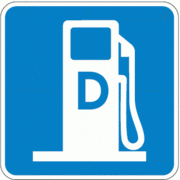What's the Difference Between Propane & Natural Gas?
By Fuelman Inc.

Natural gas and propane are popular heating and power sources that are used in homes and businesses across the world. Despite these similarities, there are several significant differences between the two fuels. Understanding their distinctions will help you find the right energy source for your property and budget.
3 Differences Between Propane & Natural Gas
1. Cost
Natural gas is a bit cheaper than propane. However, propane burns cleaner and more efficiently than natural gas because it has a lower carbon content. Even though the initial price per unit is higher, you’ll be saving money overall.
2. Impact on the Environment
 Although its global warming emissions are drastically lower than coal or oil, natural gas is still a greenhouse fuel and contributes to the effect. Propane is a more eco-friendly choice because it isn’t toxic to the environment, and it reduces carbon dioxide and pollutants emitted into the air, such as nitrogen oxide and carbon monoxide. Additionally, there are tax incentives to use propane, including federal credits for propane furnaces and fans or hot water boilers that could save you up to $150.
Although its global warming emissions are drastically lower than coal or oil, natural gas is still a greenhouse fuel and contributes to the effect. Propane is a more eco-friendly choice because it isn’t toxic to the environment, and it reduces carbon dioxide and pollutants emitted into the air, such as nitrogen oxide and carbon monoxide. Additionally, there are tax incentives to use propane, including federal credits for propane furnaces and fans or hot water boilers that could save you up to $150.
3. BTUs
A British thermal unit (BTU) is a traditional measure of heat. It’s the amount of heat required to raise the temperature of one pound of water by one degree Fahrenheit. One cubic foot of propane is equal to 2,516 BTUs, while the same measurement of natural gas is equal to 1,030 BTUs. This means that propane holds over twice as much energy as natural gas, making it the more efficient fuel.
If you’re considering propane for your property, contact the team at Fuelman in Honolulu, HI. Since 1978, these professionals have provided homes and businesses across Oahu with commercial, industrial, and marine lubricants as well as propane and diesel bulk fuel delivery. Dedicated to customer service, their team will also unload and set up all of your orders. View their services online, or call (808) 842-3835 to schedule a delivery.
About the Business
Have a question? Ask the experts!
Send your question

